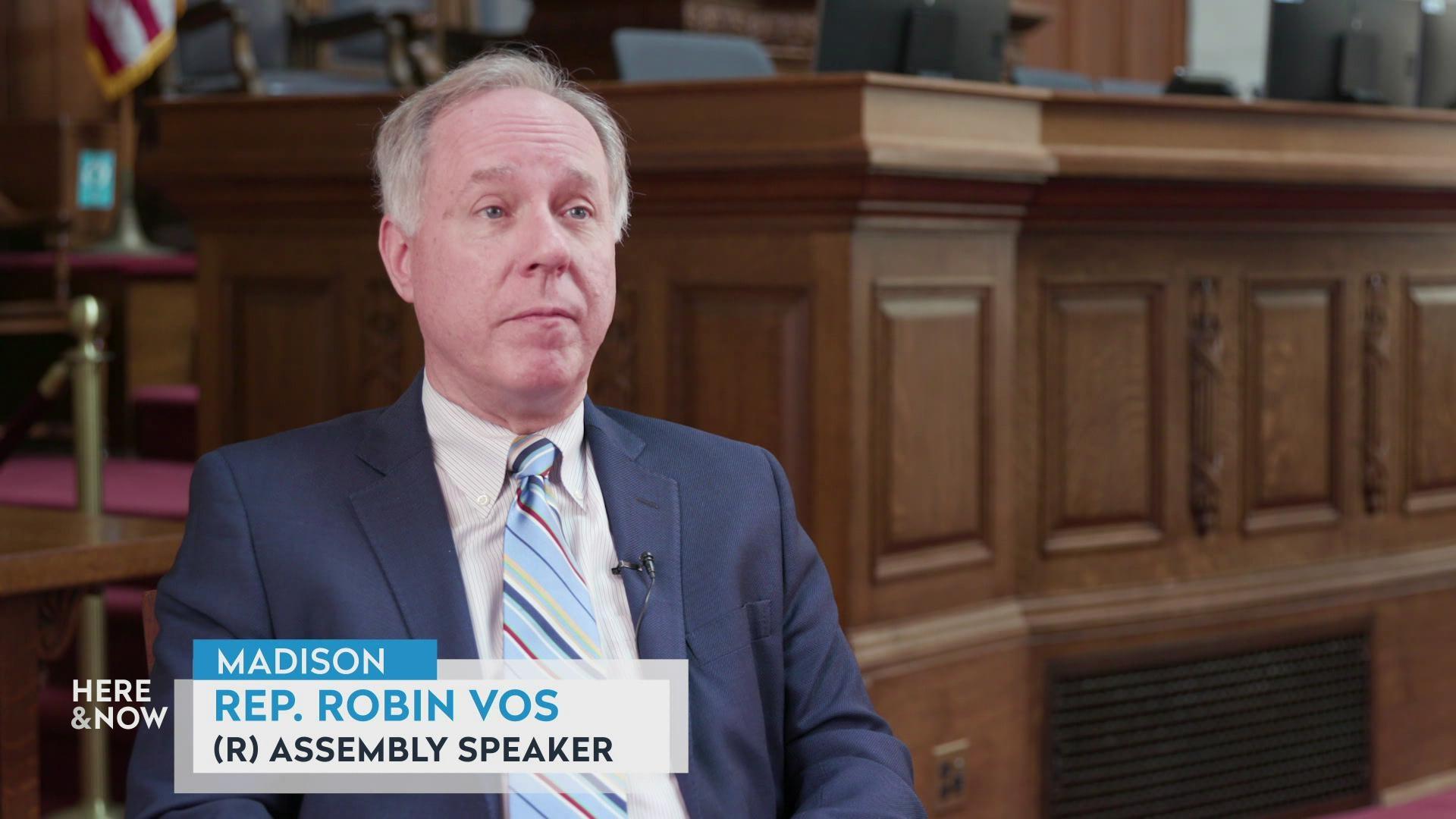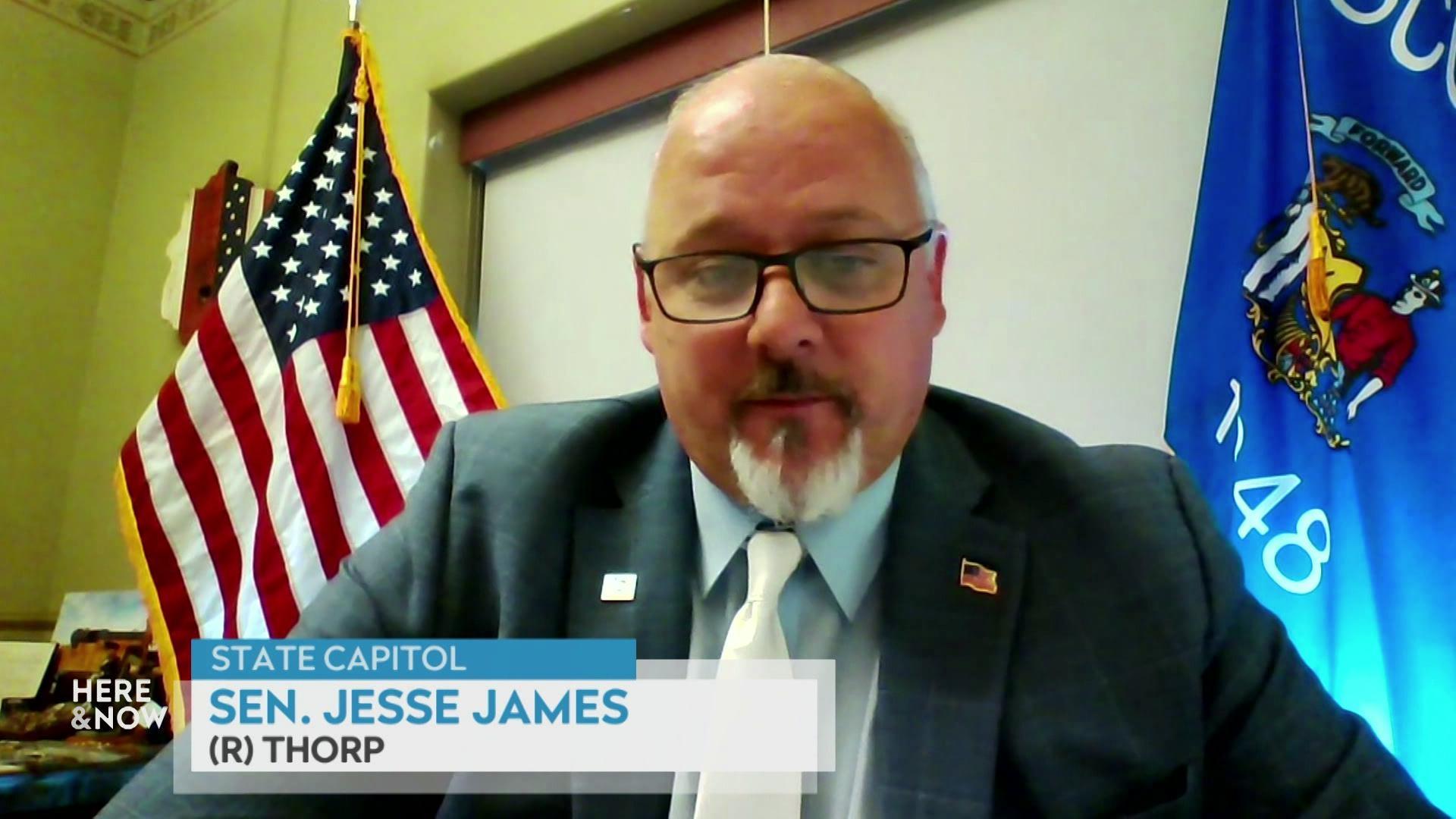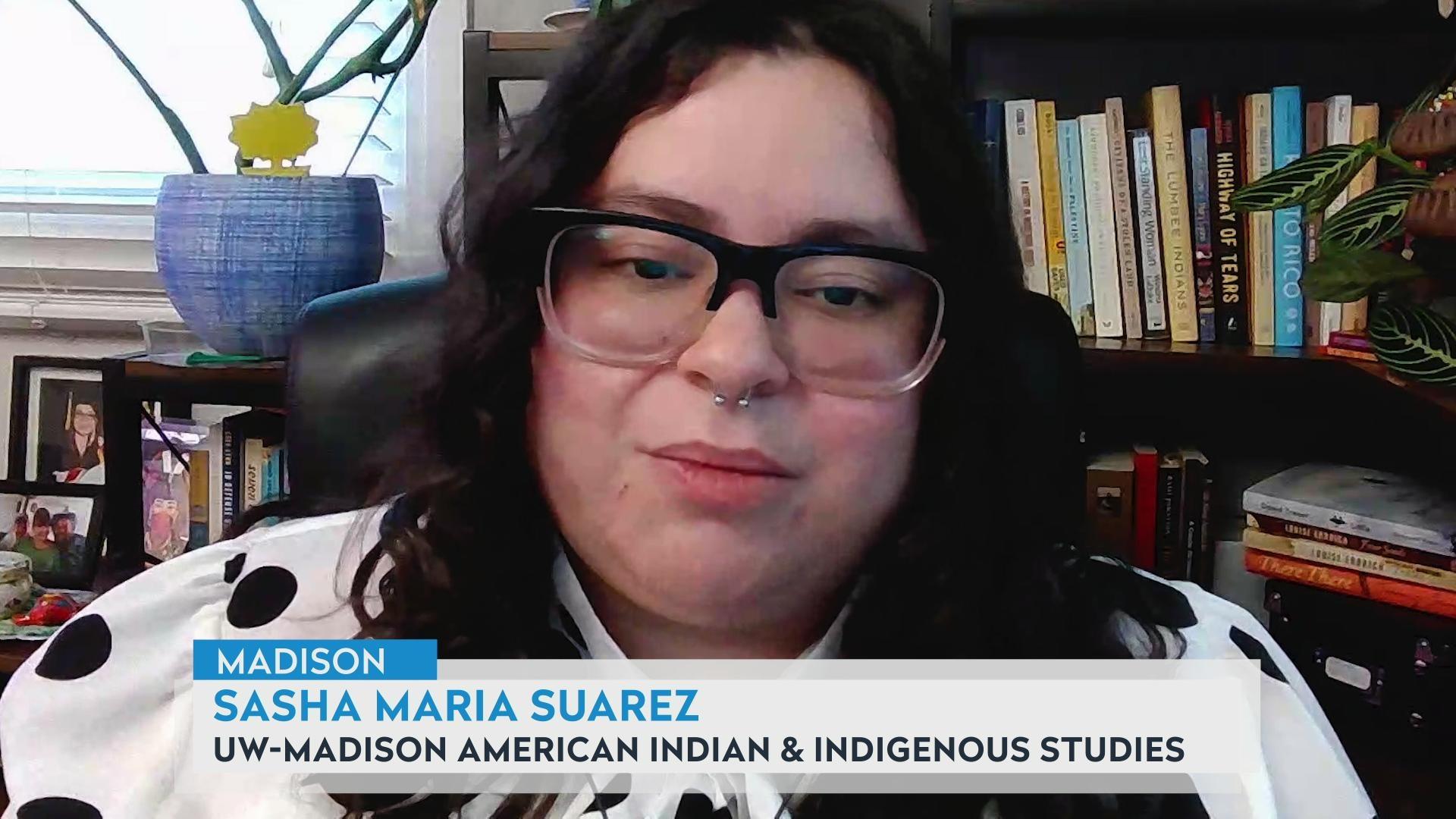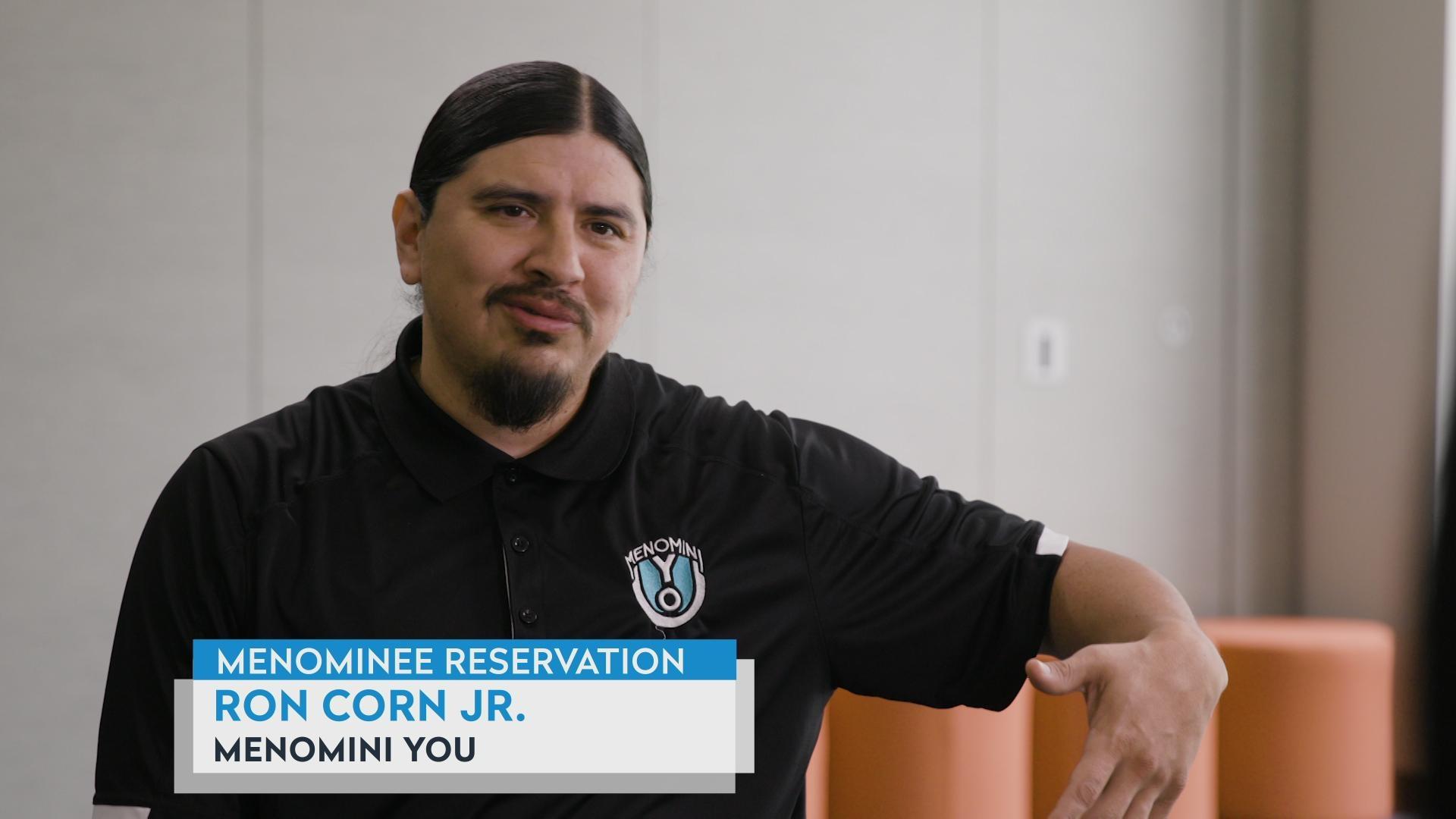Chancellor Michael Alexander on the UW's future in Marinette
University of Wisconsin-Green Bay Chancellor Michael Alexander discusses halting in-person classes at its Marinette campus and plans to provide educational options in rural communities in the region.
By Marisa Wojcik | Here & Now
February 1, 2024 • Northeast Region
VIDEO TRANSCRIPT
Marisa Wojcik:
How and when did UW-Green Bay arrive at the decision to close in-person campuses at Marinette?
Chancellor Michael Alexander:
So we didn't close it. I want to make sure that's really important, that distinction. We're just changing what we're doing in a different way, right? So we had 14 classes that we taught in-person this past semester. We'll now shift those classes to online. And it was the big change that we made.
Marisa Wojcik:
And so if it's not specifically closing, but there are not in-person classes, can you explain the distinction? What is gonna happen on the campus?
Chancellor Michael Alexander:
Yeah, sorry. Absolutely. So what we're very excited about is, one is that we know the county has invested a lot of money in the theater there to use as a community resource and as a form of education, right? And so we will continue to operate the theater for the county and for the people of Marinette and beyond. It's one of the only theaters, really, if you go up to the top of the state. So it's a really important community resource. Secondly, we're thinking about education differently, right? So as opposed to teaching courses that are in a particular major in person there, what we are doing is using our continuing education to talk to companies up in Marinette to think about how we can take people who are in the workforce and provide education to them to help them advance their careers and their lives. And then, finally, with our Lifelong Learning Institute, to invest there where we know there's a sizable retirement population surrounding that campus. And how can we be a resource there to provide education to people who are in a different stage of life than typically when you'd attend the university?
Marisa Wojcik:
And that last one, that would be online as well?
Chancellor Michael Alexander:
Nope, that'd be in person. And the pieces of continuing education could be either in person or online, but a lot of that would certainly be in person 'cause it's local, right? People would be able to come to do that. So in essence, you know, the students are somewhat already voting, right, how they want their education. If you look in the counties surrounding Marinette, right, and we have a 16-county footprint, and if you look at the counties that are north and west of Marinette, our enrollment and students who are attending UW-Green Bay has gone up over the last four years by about 250 students, even though the enrollment at the Marinette campus has gone down, right? And so it's not that students are not accessing education. They just want to access it in a different way, right, in some ways. And so we have to honor the fact that if you live in Niagara, right, which is an hour and a half away, Marinette might be the closest thing that you have as an educational resource. So how do we make sure that that student is getting the best experience we can give that person?
Marisa Wojcik:
And just so I understand, when you say enrollment has gone up by 250 students, is that at UW-Green Bay and online?
Chancellor Michael Alexander:
Yep, it's in all ways. So we track the number of students from those counties, right, that are taking classes with UW-Green Bay. And those could be either online, those could be they're coming to the Green Bay Campus, those can be through their high school. Those can be any ways that we're interacting with students. And that's how we measure access, right? We measure, are we providing education to as many people as we can as a regional university?
Marisa Wojcik:
And so those numbers go up, essentially, but the specific UW-Marinette in-person classes' student enrollment number is what has declined.
Chancellor Michael Alexander:
Correct, that's right. Yep. Yep, and so it's how do we use our resources for the betterment of the region that we're serving, right? And we've had tons of conversations in Marinette, and we've done very much the same things in Manitowoc, Sheboygan, and Marinette. And if you look at Manitowoc, it's the only former UW college that has actually increased in its enrollment. Now, we did that in a creative way, right? Through our Rising Phoenix Program, right? Sheboygan, doing well, right? We did many of the same things on all three of those campuses. They resonated really well in Manitowoc and Sheboygan. Some of the things we tried just didn't resonate the same way in Marinette, right? We want to adapt, right? We want to make sure that we're being proactive and making sure that we're valued to the people up there.
Marisa Wojcik:
Why do you think it's changing at Marinette as compared to other campuses?
Chancellor Michael Alexander:
I think there's a whole bunch of reasons. Some of it is demographic. Some of it is that literally 100 yards or so from the Marinette campus is the NWTC Campus, the technical college, Northeast Wisconsin Technical College. We're right next to each other. Why are we competing in a region with that number of students? We shouldn't be competing. We should just compliment what NWTC does really well, right? And use our resources in a way that better, you know, we both don't need to be providing in-person education for the same classes. It doesn't make any sense, right?
Marisa Wojcik:
So, you know, overall, there's an under-resourcement of higher education in rural areas in Wisconsin and across the country. When UW-Platteville ended in-person instruction at Richland Center, there was obviously a lot of tension and emotion, and some people were afraid that the UW-Platteville main campus was kind of funneling resources and students away from Richland Center and towards the main UW-Platteville campus. You know, with a lot of under-resourcement, is there a worry that people have to sacrifice one campus for another?
Chancellor Michael Alexander:
So I wouldn't view that at all in that way. I think our goal should be to increase educational attainment for everybody in Wisconsin. The people in Wisconsin are going to tell us. We could try to convince them to do one thing or another. We have found that does not work, right? I heard someone saying the other day it was really, really good, right? Think about how you use a bank and how we used a bank 10, 15 years ago. It's changed, right? So is education. And I think this is correct. The students are gonna, they're telling us how they want their education. Now, it's an excellent institution, right? It's hard because there's some students, of course, who still want in-person education, and we want to provide it. But what I would say the difference with the resources that we have is that we have to be smart about how we deploy them to be able to get the most impact per dollar that we spend, right? So we can spend those dollars on 14 in-person classes in Marinette, or we could spend those dollars to raise the overall educational attainment of that region.
Marisa Wojcik:
And are you still at all concerned about the impact that maybe this might have on rural high school students in northern Wisconsin? There's just less and less access to, you know, in-person instruction in northern Wisconsin. And, you know, I think sometimes that part of the state feels forgotten or left behind.
Chancellor Michael Alexander:
Yeah, so I totally agree with you, and that is why it's really important to us that we are not closing, right? There has to be access points to education. UW-Green Bay has to have a presence in northern Wisconsin. And we're investing in the high schools there, to be clear. So with our Rising Phoenix Program and with other things that we do for students, particularly, who are interested in college, to get them a headstart on that college experience, to be able to offer classes that the high schools might not otherwise be able to offer with a smaller population in the high school, right? These are things that we absolutely are trying to do to help that region. Because it does matter, right? We can't look at the problem and just throw our hands up. We have to find a way to actually make it better. And that's what we're trying to do here. And again, I go back to the NWTC issue, right? Like, we think a little differently about this, I think, sometimes, but I want to be clear. If most of those classes, if not all of those classes, those 14 classes, there's a class that's pretty much being identically taught by NWTC, why are we duplicating our educational resources in an area that is harder to serve because of how spread it out it is with the number of people that are there in the population, right? We've gotta think differently about how we give access to those people who want it.
Marisa Wojcik:
And then is this kind of the trend you see longer into the future? Or are you really just kind of adapting to kind of what you can see, you know, past 5, 10 years, future 5, 10 years, and you're trying to stay flexible to what is happening?
Chancellor Michael Alexander:
Yeah, so I think we view this that, you know, education, and particularly higher education, has not been great at changing at a rapid pace for a very, very long time. Hundreds of years, perhaps. So it's really key, I think, for the industry that we start thinking in terms of how do we make sure we're making the changes that provide access to the great work that our faculty and staff do that's independent of the great education that is occurring, right? If you don't make changes that allow people to access your product, then it's really hard to get that product to people. That's what we're trying to do, right? We know we have great faculty and staff, right? So how do we get more people to connect to them? And those changes are things that we're doing very proactively, right, as a way that we do think that is the future, right? The future is gonna be about how do you interact, I think, and how do you make sure that people understand the product that you're delivering and how it could benefit them.
Marisa Wojcik:
I saw a little bit of that county board meeting, and people just have a lot of questions. Has it been a productive conversation with people in the community? Do they feel like they're being heard? Do you feel like they're hearing you? How is that going?
Chancellor Michael Alexander:
I think always, unfortunately, sometimes it takes an event to cause a conversation, right? So we've been trying to converse in Marinette for, you know, five years, right? And we've talked to a ton of people up there and had great, great conversations. We've tried to listen really hard to what the community wants. And those are some of the changes that we've made up to this point. So yes, I do think the questions the county board asked were fantastic, and it allowed us to have a conversation. It was great, in my opinion, right? It allowed us to have a dialogue and hopefully come to a better understanding that we, I think, all share the same goal. Like, every question that I got from the county board to me was about caring for their community and making sure there's education for it. I think those are great questions, right? Why would we not engage that way?
Marisa Wojcik:
What do you think is the most important thing for a statewide audience to hear on this topic?
Chancellor Michael Alexander:I think that, more and more, education is becoming local. You know, one of the things that's great in our state is that we have an incredible flagship, right? And then we have a lot of people who are gonna want to stay local to get their education. And how do we make sure that we are providing the right avenues for that to occur? And I'm very optimistic about the future in that regard. And I think the changes that are being made, I can only speak for ourselves, right, but the changes that UW-Green Bay is making to help make sure that we can meet the goals of the state, to have more and more people have access to education.
Marisa Wojcik:I guess I have one more question. Was it hard for you to come to these solutions?
Chancellor Michael Alexander:
So that's a really good question. Sorry, give me a second to think on that 'cause that's a great question you're asking. Every time you make change, it's, of course, difficult, because you want to be thoughtful with how you do it, and you want to make sure that you are honoring the great voices that are in UW-Green Bay that are advising on how to move forward, right? And so every decision we make, I feel, is a combination of all the things we're hearing and the things that we're seeing, and combining that into something that we think can work, moving forward. I will also say, and proudly say it, we don't get it right every time, right? But we're willing to, in some ways, I guess, be willing to fail to try to get this right. Right? I'm really proud of the UW-Green Bay for that. Like, we don't just sit paralyzed. We're moving. Is it gonna be perfect? We might stray slightly occasionally here or there, and we correct it. But I feel that's a lot. So when you ask me that question, I feel it's better to move. You can't in higher ed today wait for perfect. Like, I love the expression perfect is the enemy of good. We have to continually be getting better, and that's what we're trying to do.
 Passport
Passport











Follow Us